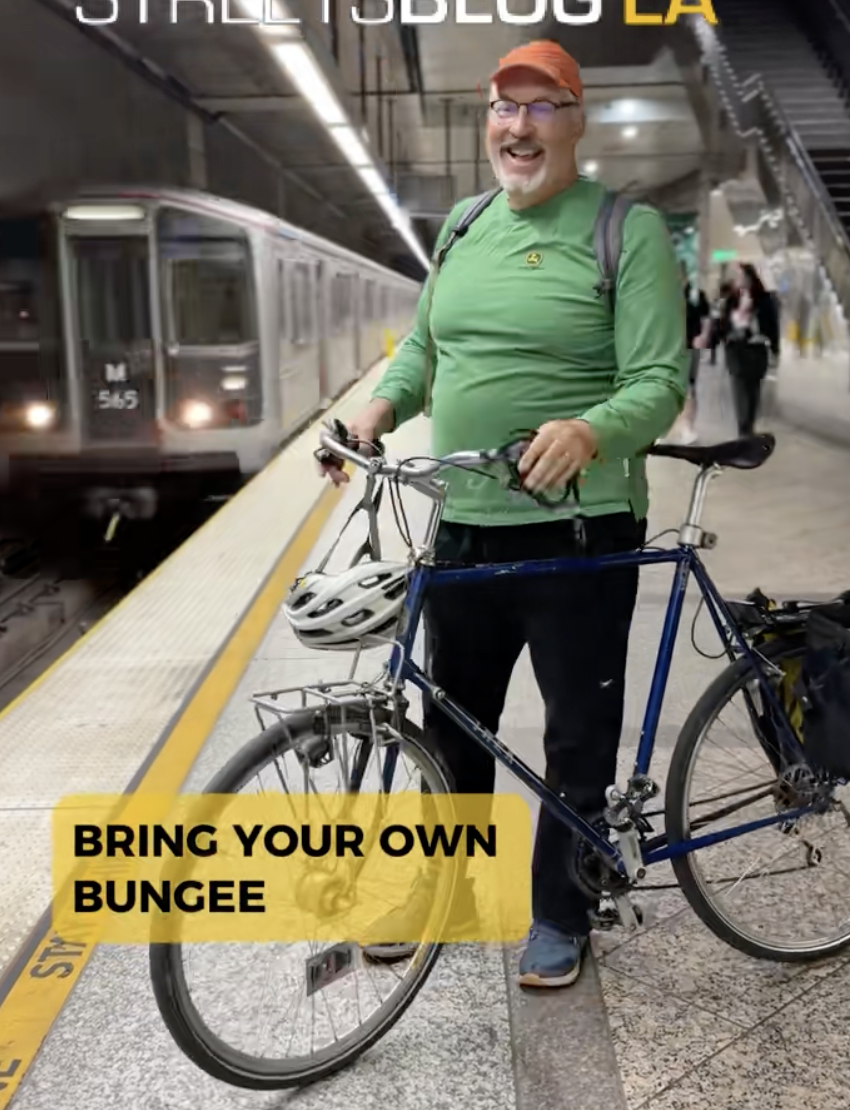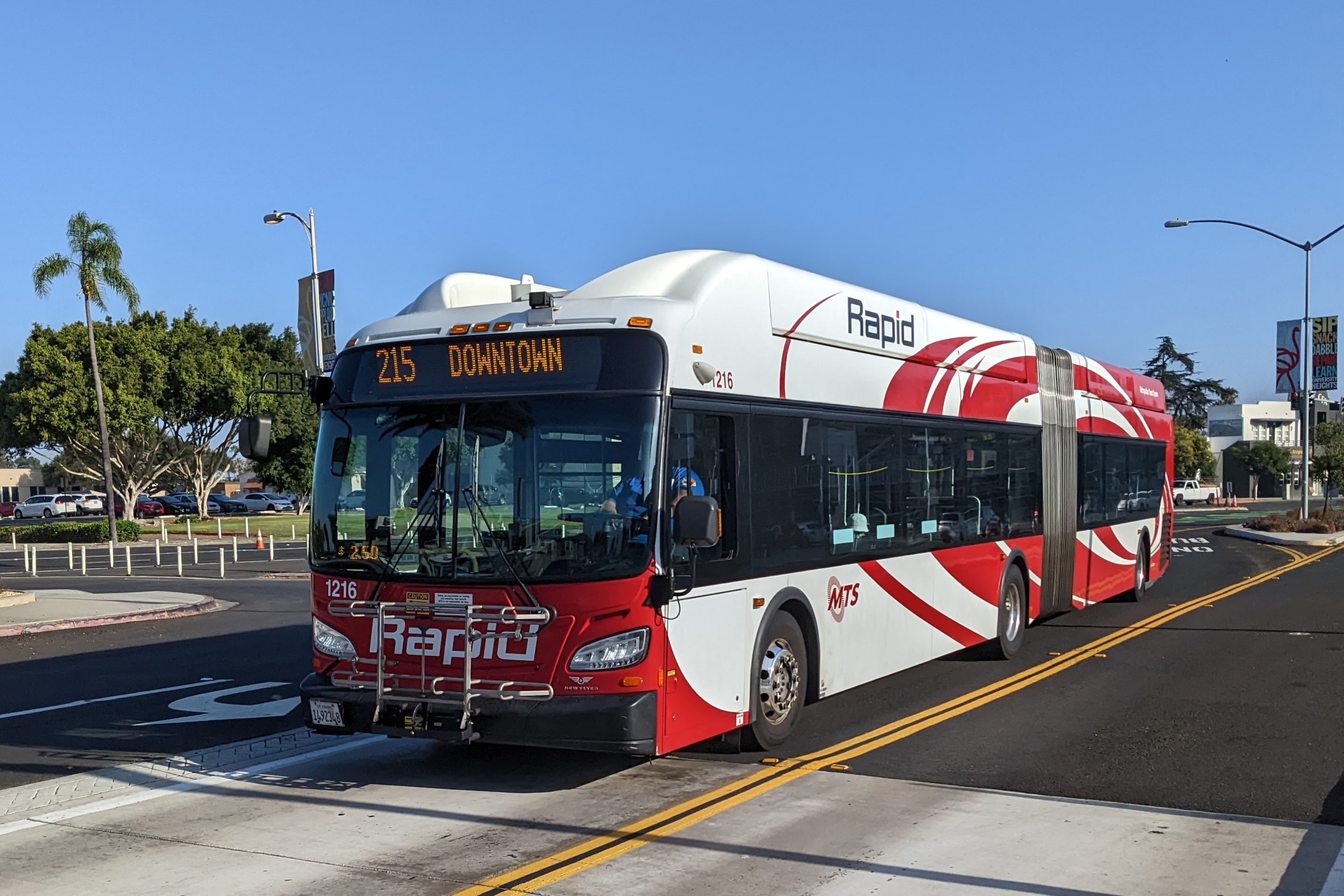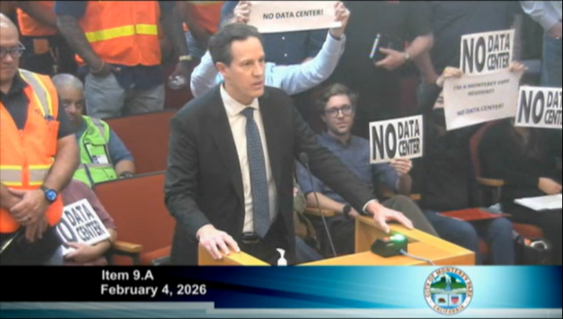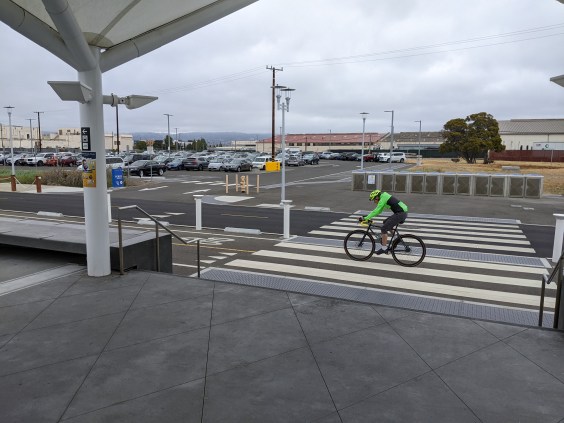Some of the most intimidating barriers to enjoying cycling have less to do with non-existent bike lanes and hulking SUVs, and more to do with the kinds of bodies our cycling culture is built to suit — and in a new online speaker series, 13 riders shared stories of how disability, discrimination, and differences have shaped the way they ride.
Organized by avid long-distance cyclist Annalisa van den Bergh, the "Cycling With" Summit brought together speakers who ride bikes with — and not always despite — disabilities, body differences, and discriminatory barriers that often place them outside the dominant stereotype of a person who rides. Van Den Bergh herself has Type 1 diabetes — a condition whose management she describes as "virtually a full-time job" that can make biking a challenge — and she wanted to make space for others to hear the stories cyclists whose experiences aren't often the focus of cycling advocacy.
One standout interview was with Jasmine Reese, who spoke about the experience of riding her bike more than 10,000 miles while managing clinical depression. Reese, who describes herself as a "a young Black woman weighing over 200 pounds [who] does not fit the standard profile of most long-distance cyclists," spoke about how becoming an everyday cyclist gave her a sense that her "body and [her] mind were still working, and could still be repaired," and inspired her to undertake a solo bike tour across the United States and Canada. (And she did it while towing a violin, a pet carrier for her dog, Fiji, and with less than $50 in her pocket to boot.)
"Cycling provided me with so much in those dark times," Reese said. "It got me out of the house; it got me into fresh air, it gave me the exercise I needed; it was the mode of transportation that connected me with people and things that I needed in life, like my education. And it took me away from my own mind, as well as all the external things that influence my depression."
Reese doesn't mince words about the racism she experienced on her trip, and provides some practical tips for navigating a long bike tour as a Black woman.
Olivia Round, who interviewed Reese, feared that she might experience gender-based violence while on bike trips.
"I grew up believing that men were dangerous and couldn't be trusted — and I found lots of supporting evidence to keep that fear going," Round said. "It became debilitating ... and, eventually, I realized I spent a whole lot of my time worrying about sexual violence."
Round's interview is a fascinating, vulnerable, and sometimes uncomfortable exploration of how misogyny can shape the biking experience. She also shares a list of things she did to develop the courage to undertake a solo, cross-country bike tour, despite the threat of violence against women on our roadways, campsites, and beyond.
Tampa-based cyclist Leo Rodgers spoke of re-learning to ride after losing a leg in a motorcycle crash — and how riding a fixed-gear bicycle with clips has become not only an alternative to using a wheelchair, but also a tool to "change [his] life and make [him] stronger."
He also offers reflections on how his job as a bike mechanic has helped him understand the needs of the unhoused cyclists who frequent his shop — and how access to bikes can help them gain employment and housing security.
Denver-based Black Girls Do Bike leader Stephanie Puello may be the first Black woman to bike the Trans America cycling route — but she grew up biking on the sidewalks of Miami, terrified of drivers. She spoke about the privilege of being able to choose to bike as an adult, even when you live at the intersecting barriers of racism and sexism — and how cycling has "given [her] freedom that she's never been allowed to experience," especially when riding with other Black women in Colorado.
"When it comes to riding a bike, it's like people say, what's the big deal? It's a bike. Go out and do it," Puello said. "What people don't realize is that it's not so much that other cyclists are outwardly discriminating against you; it's more like, 'you did not expect me in this world'.... When I'm riding with other Black women, there's this liberation. I don't have to fit a mold. I can just be me."
Puello also spoke powerfully about her experience organizing two-wheeled Black Lives Matter protests in Denver, and how Black cyclists can help lead the fight to end white supremacy.
The 13 Cycling With Summit videos feature cyclists with many important and under-discussed experiences, from cycling with PTSD to getting back on a bike after losing a loved one to traffic violence. They're worth binging — and putting at the center of our cycling culture.






